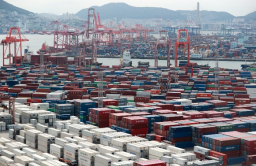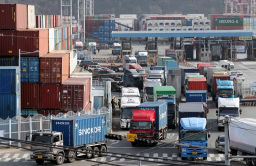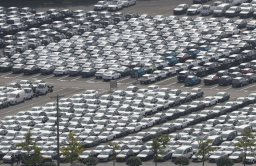-
KOSPI 2577.27 -2.21 -0.09%
-
KOSDAQ 722.52 -7.07 -0.97%
-
KOSPI200 341.49 +0.02 +0.01%
-
USD/KRW 1396 -2.00 0.14%
Hyundai, Kia support Korean exports hit by weak chip sales
Automobiles
Hyundai, Kia support Korean exports hit by weak chip sales
The two carmakers top Korean exporters from July 2022 to June 2023, posting their largest-ever annual overseas sales
By
Dec 05, 2023 (Gmt+09:00)
2
Min read
News+
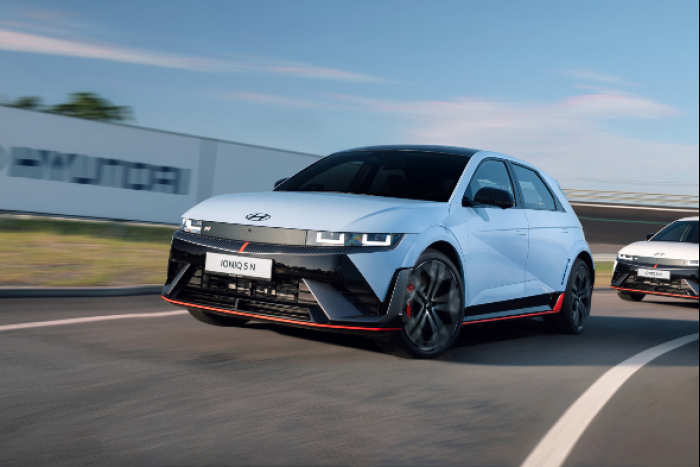
Two affiliates of Hyundai Motor Group, the world’s third-largest automaker by sales, ranked as the top South Korean exporters in the one-year period from July 2022 and are supporting the country’s trade hit by declining global semiconductor sales.
Hyundai Motor Co. exported $31 billion worth of vehicles and auto parts from July 1, 2022 to June 30 of this year, up 29.6% on-year. Its sister company Kia Corp. logged $23.5 billion worth of exports during the same period, up 30.7% on-year, according to Korea International Trade Association (KITA) on Tuesday.
Both companies posted record-high exports on a yearly basis and received awards for their outstanding export performance from KITA on Dec. 5.
It is the first time that the two automakers won the awards in the same year since 2012, when Hyundai and Kia shipped over $20 billion and $15 billion worth of products overseas, respectively.
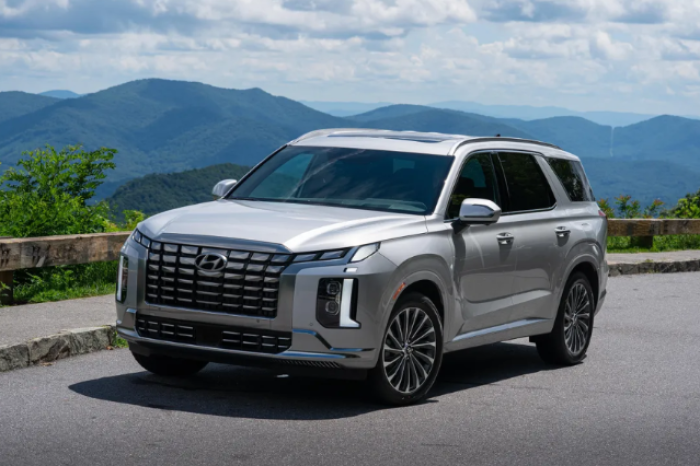
GENESIS, LEISURE VEHICLES, EVs
Hyundai Motor Group said the exports were led by increased sales of premium brand Genesis, electric cars and leisure vehicles like sport utility vehicles (SUVs) and minivans.
Electric vehicle exports by Hyundai and Kia nearly doubled from 2020 to 218,241 units in 2022, the group said.
The group forecasts that EV exports will further increase as Hyundai is building an EV factory in Ulsan, aiming to produce 200,000 cars yearly from 2025, while Kia is constructing its first electric purpose-built vehicle plant in Hwaseong to produce 150,000 units annually from the same year.
The group added that Kia’s sales share by region is relatively even, with 31% in Europe, 13% in the Middle East and Africa and 12% in Asia-Pacific, which will positively affect exports.
Korea’s automobiles and car parts generated a trade surplus of $48.7 billion in 2021, reaching 1.7 times the total trade profit for the same year. The local auto industry is expanding, currently making up 12.1% of the manufacturing sector and 11.2% of employment, according to KITA.
Overseas sales of Korean cars backed the country’s exports, which declined for 12 straight months until September of this year.
Korea, home to the world’s two largest memory chipmakers Samsung Electronics Co. and SK Hynix Inc., saw the export drop caused by falling global sales of semiconductors.
Chip exports from Korea rebounded in November, ending 15 months of declines.
The country's chip exports will continue to post growth in the coming months, driven by strong demand from smartphone makers and artificial intelligence servers, Ministry of Trade, Industry and Energy said earlier this month.
Write to Sungsu Bae at baebae@hankyung.com
Jihyun Kim edited this article.
More To Read
-
Dec 01, 2023 (Gmt+09:00)
-
Nov 13, 2023 (Gmt+09:00)
-
Nov 01, 2023 (Gmt+09:00)
-
Jul 17, 2023 (Gmt+09:00)



